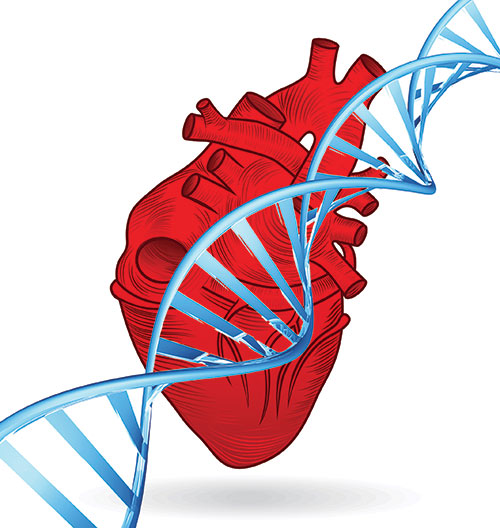
A gene mutation in the cystic fibrosis gene may explain why some people with Duchenne Muscular Dystrophy (DMD) experience cardiac problems at an earlier stage to others according to research from the University of Texas Southwestern Medical Center, which could help clinicians to better personalize treatment for these patients.
DMD is an X-linked genetic condition that causes progressive muscle weakness in those affected due to a failure to produce functional dystrophin, which normally protects muscle cells from damage. It affects one boy per 3500-5000 born worldwide.
There are various complications that can affect boys and young men with DMD, but these individuals often die from cardiomyopathy, when the heart muscle becomes weak, before the age of 35 years. Although cardiomyopathy eventually impacts all patients with DMD, there is considerable variation in the timing of its onset, the reasons for which were previously unknown.
Pradeep Mammen, M.D., is an associate professor in the department of internal medicine’s division of cardiology at the University of Texas Southwestern Medical Center. He and his colleagues decided to investigate the cardiac variation seen in those with DMD and assess whether there was a genetic explanation for the differences observed between individuals.
The team recruited 22 young men or boys with DMD and 12 female carriers of the condition to take part in the study, as although carriers do not have all the symptoms of DMD they do often develop cardiomyopathy. Different measures of cardiac health were taken from most participants (32 in total) and exome sequencing was used to search for variants that could be responsible for variation in cardiac symptoms in those with DMD.
Although the study was small, the researchers managed to identify a missense mutation in the CFTR gene that appeared to be linked to worse cardiac health in 5 individuals with DMD. These individuals all had reduced left ventricular ejection fraction – a sign of failing heart muscle – compared with 10 controls with DMD that did not have the CFTR variant.
The CFTR gene encodes proteins that help heart cells to stay healthy by regulating levels of carbon and other electrolytes that can enter and exit the cells and are needed for normal cell function. Notably, different mutations in this gene cause cystic fibrosis.
“Even with new strategies to treat these patients on the horizon, such as genome editing that could convert DMD to a less severe form known as Becker’s muscular dystrophy, cardiomyopathy will continue to be a patient’s most serious and life-ending consequence,” says Mammen. “Finding ways to help preserve heart function over time could offer new hope for patients with DMD.”
The team acknowledge their study was small and that further validation of the function of the CFTR variant is needed.
“Verification of these results would have important clinical implications, as genetic modifiers would need to be screened in all patients with DMD,” write the researchers in the Journal of the American Heart Association article describing the study.
“If the screening identifies a risk factor variant within the CFTR gene, aggressive guideline‐directed heart failure medical therapy should to be initiated at an early age.”











